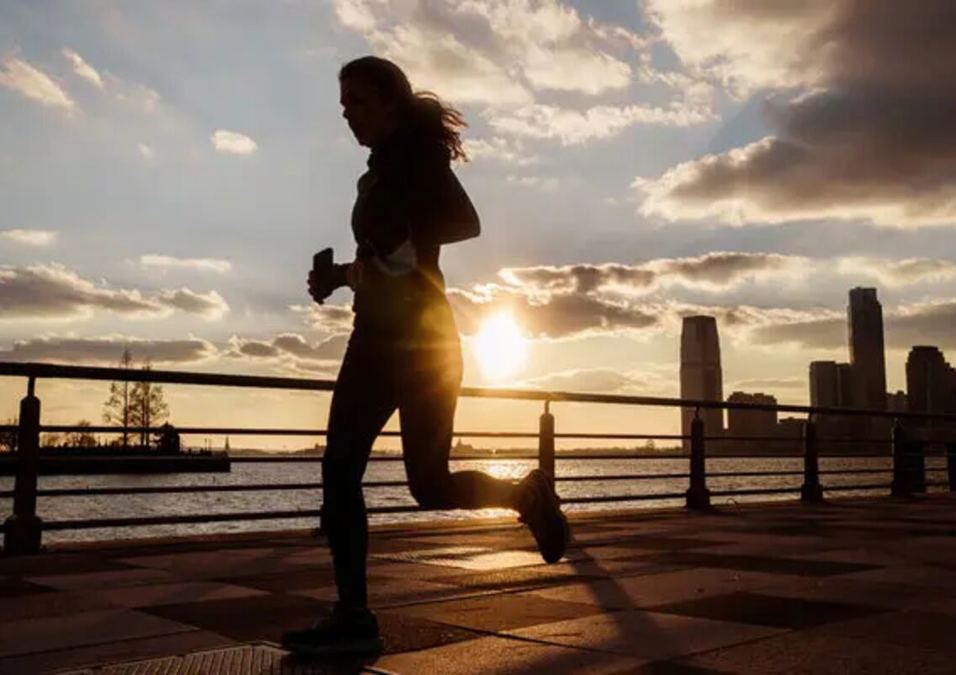Best Time to Exercise: Evening?

SIGN UP FOR YOUR FREE DAY PASS TODAY!
Early risers like Mark Wahlberg and Dwayne "The Rock" Johnson hit the gym before most of us are awake—at 3:30 a.m. and 4:30 a.m., respectively.
Even Michelle Obama used to start her day with a 4:30 a.m. workout. This reinforces the belief that successful people work out early in the morning.
But for the majority of individuals, that's not the reality. According to Wellhub's 2024 year-end trends report, the most popular time for wellness activities worldwide was 6 p.m.
The subscription service, previously known as Gympass, analyzed user data and concluded, "wellness hour is the new happy hour."
Strava, a fitness tracker that combines performance tracking with social features, corroborated this with its 2024 "Year in Sport" report.
The app reported huge increases in running and walking clubs in 2024—up 59% and 52%, respectively—as more people used fitness as a way to connect socially.
For group runs during the workweek, the preferred time was between 6 and 7 p.m.
This preference isn't unique to 2024. Future, a fitness coaching app, revealed in 2023 that its members were most active during the 6 p.m. hour.
This all raises a question—what's the best time of day to work out? The answer depends on what you’re hoping to achieve. Here’s what the research shows so far.
Evening Workouts are Best for Strength Training
A study from 2012 found the body performs better in the evening for short, high-intensity activities, such as strength training. These exercises tend to feel tougher in the morning.
Fitness expert Jillian Michaels explained in Shape that research suggests evening workouts allow for longer and more effective training sessions.
However, a 2019 study indicated that strength and muscle growth outcomes are similar whether workouts happen in the morning or evening.
Aerobic Exercise Works Anytime
For aerobic workouts, like running or cycling, the time of day doesn’t affect performance or results, according to a 2017 study. Aerobic exercise remains equally effective no matter when it's done.
That said, fasted exercise—training after 10–12 hours of not eating—can boost fat loss for a short period post-workout.
Sports dietitian Lori Russell told Byrdie that mornings might be the most practical time for fasted workouts.
Late-Night Exercise May Disrupt Sleep
Late-night workouts could make it harder to sleep, as high-intensity activity elevates both heart rate and body temperature.
Strength and conditioning coach Eric Curry explained in Science for Sports that if late evening is the only time available, it’s better to opt for low-intensity workouts like yoga instead of vigorous exercises.
Morning Workouts Encourage Consistency
Exercising consistently is key to forming a long-term fitness habit. For many, mornings offer a predictable window of time free from distractions.
Exercise physiologist Ciarán Friel told The New York Times that starting the day with exercise can help people feel more in control of their schedule.
Moving Your Workouts to the Morning Can Adjust Your Body Clock
Biological factors like sleep patterns, hormones, and hunger are all tied to natural daily rhythms. However, these rhythms are adaptable.
Cognitive neuroscientist Kimberly Fenn told The New York Times that shifting to a morning workout routine can help recalibrate your body’s internal clock, making early exercise feel more natural over time.
The Real Answer? Exercise When it Works for You
Ultimately, the best time for exercise is the time that works best for you. A 2021 study highlighted the importance of personal preference in workout effectiveness.
Marisa Mickey, assistant professor of exercise science at Endicott College, told Real Simple, "The best time to exercise is when you can dedicate time to yourself and give your workout your full effort."
The Bottom Line
Whether it’s early morning, mid-afternoon, or post-work hours, the most important thing is finding a time that fits your lifestyle.
Personal preference, consistency, and your specific fitness goals should guide when you decide to work out.
Source: yahoo
The opinions shared in the GymNation blog articles are solely those of the respective authors and may not represent the perspectives of GymNation or any member of the GymNation team.
GET YOUR FREE TRIAL TODAY

















































































